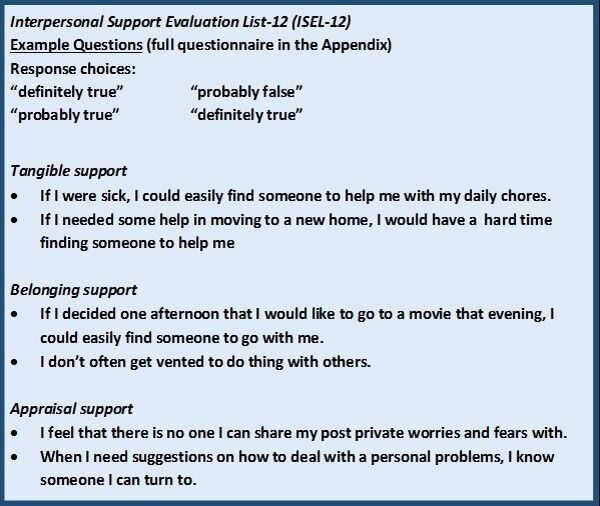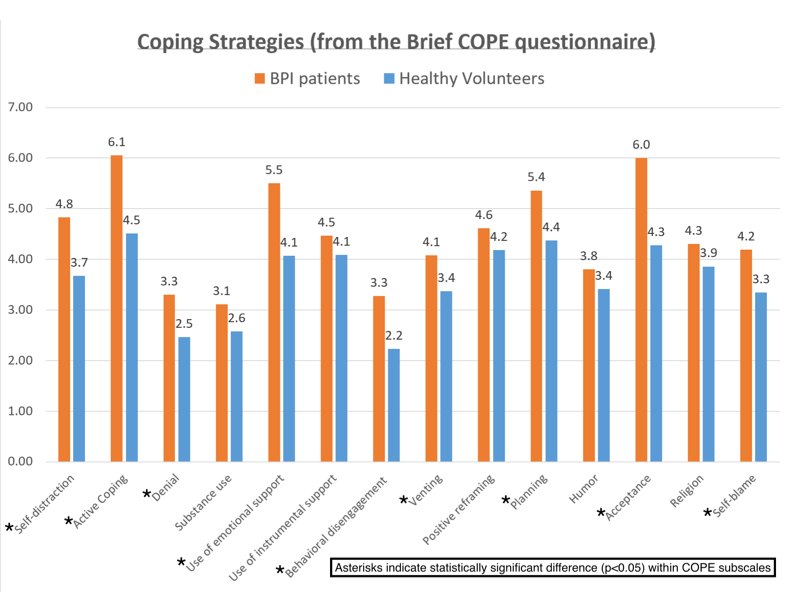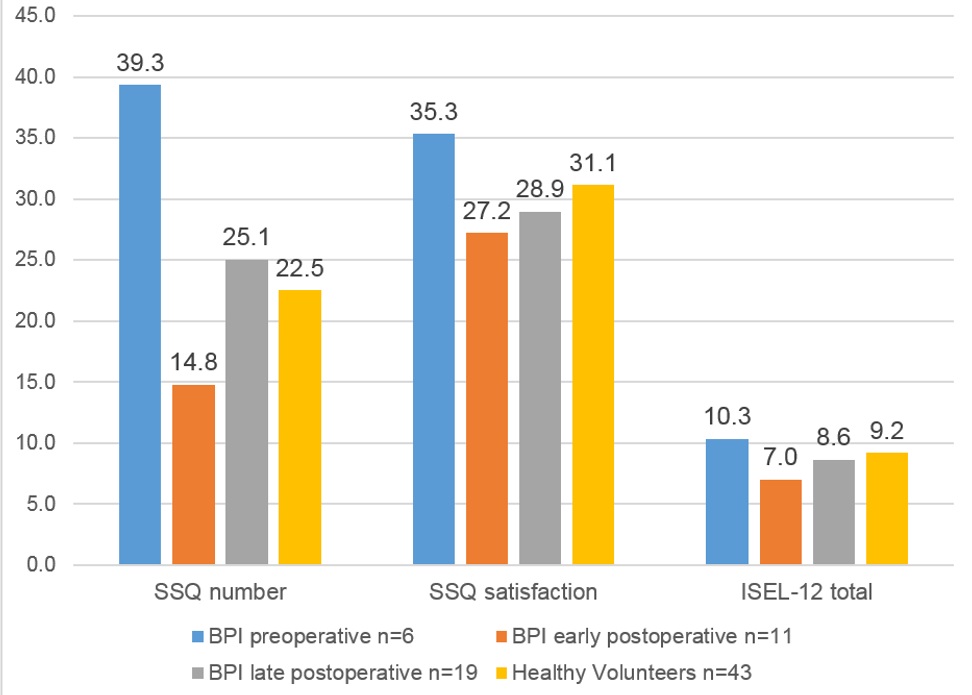Social Support and Coping Strategies in Patients with Adult Traumatic Brachial Plexus Injury
Christopher Dy, MD MPH FACS, Ryan Sachar, BS, Heather Shams, n/a, Wilson Z Ray, MD and David M Brogan, MD, MSc, Washington University School of Medicine, St. Louis, MO
Introduction: Given the life-altering nature of brachial plexus injuries (BPI), emotional and social characteristics of patients may influence engagement in recovery. We hypothesized that BPI patients have quantifiably different levels of social support and coping strategies compared to age- and sex-matched controls.
Materials & Methods: Questionnaires for social support (Interpersonal Support Evaluation List ISEL-12 and Social Support Questionnaire SSQ-6) and coping strategies (Brief-COPE) were administered to BPI patients and age- and sex-matched volunteer cohort (without BPI).
Results: Among BPI patients (n=36); 6 completed surveys before surgery, 11 completed surveys ≤12 months after surgery, and 18 completed surveys >12 months after surgery. There were no differences in ISEL-12 interpersonal support, number of persons available for emotional support (SSQ-6), and satisfaction with support (SSQ-6) between BPI patients and healthy volunteers (n=43). Of coping strategies assessed, these were more common among BPI patients: active coping, self-distraction, denial, use of emotional support, behavioral disengagement, venting, planning, self-blame, and acceptance. There was no difference between groups for these coping strategies: substance use, use of instrumental support, positive reframing, humor, and religion.
Conclusions: Patients with BPI have similar levels of social support compared to healthy volunteers, but are more likely to utilize a distinct array of coping strategies. Surgeons and other health care professionals should be aware of coping strategies favored by patients, particularly potential for behaviors detrimental to recovery such as behavioral disengagement, self-blame, and denial. This work will inform future investigations into the influence of social support and coping strategies on clinical outcomes after BPI.
Figure 1
Figure 2
Figure 3
Back to 2020 ePosters



